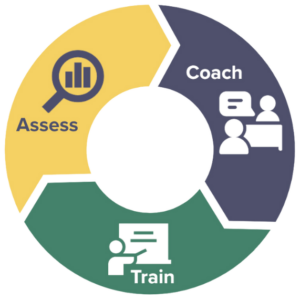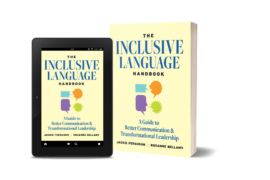In today’s ever-changing business landscape, executives need next-level leadership skills to steer their organizations into the future. From global competition and climate concerns to workforce demographics and disruptive technology, the demands on leaders are growing. But they don’t have to face these challenges alone; an experienced business coach can be a valuable partner for any senior executive. This article explores seven compelling reasons why leaders should consider executive leadership coaching to enhance their effectiveness, overcome challenges, and thrive in today’s dynamic business environment.

- Modern business is complex. A leader today isn’t just evaluated on the performance of the company – strategic vision, profits, market share, etc. They are also expected to promote an inclusive culture and ensure the well-being of the people within their organization. Leaders must consider things such as retention rates and employee satisfaction. Having a coach who can mentor you on the complexities of modern business and help you sort priorities will increase your effectiveness and your efficiency.
- You’ve plateaued. As you worked your way to your position, odds are you had several managers and supervisors along the way who helped you grow your skills. But when you’re at the top, who do you go to for advice, training, and evaluation? That’s where an executive coach steps in, because C-suite leaders need to continuously expand their skill set to maintain their competitive edge. Books and training courses are great, but finding a trusted mentor is key to accelerating growth.
- Stakeholders are demanding more. Board members, investors, and employees now expect those at the top to embody inclusive leadership traits and be strong communicators and collaborators. But often, leaders get promoted into their roles because of bottom-line performance, and not necessarily because they know how to use inclusive language or run effective meetings. An executive coach can help you master these soft skills, so you can become a more influential leader.
- It’s lonely at the top. As leaders climb the executive ladder, feelings of loneliness and isolation are common. Only another experienced professional can understand the emotional components of leadership, as well as the complex concerns that executives face. An executive coach can be a great mentor, and they can connect you with other executives navigating similar challenges or situations.
- To grow your executive presence. As you grow as a leader, the way you present yourself becomes increasingly important – on social media, at industry events, in the media, and at the office every day. With all the demands on your time, it can be challenging to also build your personal brand. An executive coach can help you define your leadership persona and style, and then develop a multichannel strategy to promote your thought leadership.
- You need an objective sounding board. As leaders become more senior, they are less likely to receive honest and transparent feedback from their team. It can be difficult to discern if people agree with your idea or are going along with it because you’re the boss. An executive coach can provide you with an objective, third-party perspective. They are also not afraid to challenge your assumptions and ask probing questions, because their goal is to help you succeed.
- To increase your mobility. The average tenure for C-suite executives is just over 4.5 years, which means you’ll likely be making a career move in the next five years. An executive coach can help you stay sharp and ready for the next opportunity. This can include growing your network, updating your CV, or expanding your skills.
Today’s rapidly evolving business landscape means that leaders must embrace the fact that they can always get better, continually push toward improvement, and seek out individuals who can help them grow. An executive coach serves as a strategic ally, offering guidance, mentorship, and an objective perspective to leaders navigating the complexities of their roles. By tapping the expertise of an executive coach, leaders can overcome current obstacles and position themselves for sustained success, ensuring they remain agile, influential, and well-prepared for any challenges that lie ahead.
Ready to get started with executive coaching? The Diversity Movement offers scenario-based, inclusive leadership, communication coaching, and more. For more information visit https://thediversitymovement.com/coaching-for-individuals/.












